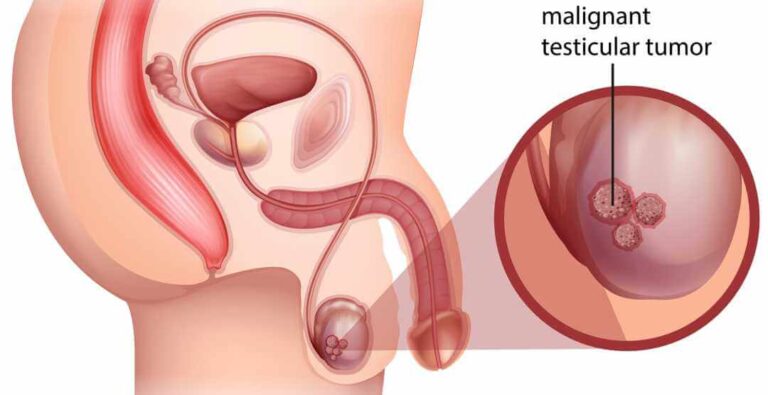Delaying Gratification: Techniques for Managing Premature Ejaculation

Understanding the Causes of Premature Ejaculation
Premature ejaculation is a common concern among men that can have a significant impact on their sexual confidence and overall well-being. To understand the causes of this condition, it is essential to recognize that it can result from a combination of physical and psychological factors.
Physically, premature ejaculation may be linked to hypersensitivity in the penis, leading to heightened sensations that trigger ejaculation sooner than desired. Additionally, hormonal imbalances or abnormal levels of neurotransmitters in the brain may contribute to this issue. It is crucial to note that certain medical conditions such as prostate problems or thyroid disorders may also play a role in premature ejaculation.
On the psychological side, stress, anxiety, and performance-related pressure are often underlying factors associated with ejaculatory control difficulties. Relationship issues, unresolved conflicts, or past traumas may also contribute to the development or persistence of premature ejaculation. Addressing these psychological aspects is crucial for a comprehensive approach to managing and overcoming this condition.
Understanding the complex interplay of physical and psychological factors in the development of premature ejaculation is an important step toward finding effective solutions. By recognizing the potential underlying causes, individuals and their healthcare providers can devise personalized strategies to alleviate symptoms and improve sexual satisfaction. Whether individuals choose to pursue physical or mental techniques, explore alternative therapies, or seek professional help, it is crucial to approach the management of premature ejaculation with patience, understanding, and support.
Common Misconceptions about Premature Ejaculation
Premature ejaculation is a common sexual issue that affects many men worldwide. However, there are several misconceptions surrounding this condition that can lead to misunderstanding and frustration. Let’s take a look at some of these misconceptions and separate fact from fiction.
Firstly, one common misconception is that premature ejaculation is solely caused by a lack of sexual experience or skill. While it’s true that some men may gain better control over their ejaculation with practice, premature ejaculation can affect men of all ages and levels of sexual experience. It is often a complex issue with various underlying factors, including physiological, psychological, and interpersonal aspects.

Another misconception is that premature ejaculation is always a permanent condition that cannot be treated. The truth is that premature ejaculation can often be managed successfully with the right approach and treatment. Many techniques, therapies, and medications are available that can help improve control and prolong ejaculation. It’s important to consult with a healthcare professional who can provide appropriate guidance and assist in finding the most suitable treatment options.
Dispelling these common misconceptions about premature ejaculation is crucial in providing accurate information and support to those dealing with this condition. By understanding the multifaceted nature of premature ejaculation and the available treatment options, individuals and couples can take steps towards overcoming this challenge and enjoying a fulfilling sex life.
The Psychological Impact of Premature Ejaculation
Premature ejaculation can have a significant psychological impact on individuals, leading to feelings of frustration, embarrassment, and even shame. The inability to control one’s ejaculatory response can affect a person’s self-esteem and overall sexual confidence. As a result, many individuals may develop anxiety and fear surrounding sexual encounters, leading to a cycle of performance anxiety and worsening of the condition. This psychological distress can further perpetuate premature ejaculation, creating a vicious cycle that is difficult to break.
Research has shown that premature ejaculation can also have negative effects on a person’s intimate relationships. The frustration and disappointment experienced by both partners can strain the emotional connection and lead to a decreased level of satisfaction in the relationship. Communication breakdowns, decreased sexual intimacy, and even the avoidance of sexual encounters can all become common outcomes of the psychological impact of premature ejaculation.
It is important to recognize the psychological toll that premature ejaculation can have on individuals and their relationships. Seeking support from healthcare professionals, such as gynecologists, can be beneficial in addressing these psychological aspects of the condition. With the right guidance and treatment options, individuals can navigate the emotional challenges associated with premature ejaculation and work towards improving their overall sexual well-being.
Physical Techniques for Managing Premature Ejaculation
Premature ejaculation can be a frustrating and distressing condition for many individuals, but there are several physical techniques that can help manage and alleviate this issue. One such technique is the “stop-start” method, which involves withdrawing stimulation when nearing climax and then allowing oneself to relax before resuming sexual activity. This method can help individuals gain control over their ejaculation and prolong the sexual experience.
Another physical technique that can be effective in managing premature ejaculation is the “squeeze” technique. This technique involves gently squeezing the base of the penis to interrupt and delay ejaculation. By applying pressure to this area, individuals can reduce the intensity of their arousal and prolong the time before ejaculation occurs.
These physical techniques can be practiced both alone and with a partner, allowing individuals to take control of their sexual experiences and improve their stamina. However, it is important to remember that each person’s experience with premature ejaculation may vary, and it may be beneficial to consult with a healthcare professional for personalized guidance and advice.
Mental Techniques for Delaying Gratification
When it comes to managing premature ejaculation, mental techniques can play a crucial role in delaying gratification and enhancing sexual stamina. These techniques focus on the power of the mind to control arousal levels and prolong sexual pleasure.
One effective mental technique is called the stop-start method. This technique involves consciously pausing sexual activity when you feel the urge to ejaculate, allowing the arousal to subside before resuming. By repeatedly practicing this technique during masturbation or sexual intercourse, you can train your body to become more aware of its arousal levels and gain better control over ejaculation.
Another proven mental technique is the distraction method. This technique involves redirecting your attention away from sexual sensations when you feel close to climax. By focusing on something non-sexual, such as counting numbers or reciting a poem in your mind, you can effectively delay ejaculation and prolong the sexual experience.
It is important to note that mental techniques for delaying gratification may require some practice and patience to master. However, with perseverance and a proactive mindset, these techniques can significantly improve your ability to last longer in bed and enhance sexual satisfaction for both you and your partner.
The Importance of Communication with your Partner
Communication is a fundamental aspect of any relationship, and this holds true when it comes to managing premature ejaculation. Open and honest communication between partners is crucial in addressing the issue and finding effective solutions. It allows both individuals to share their concerns, needs, and desires, fostering a sense of understanding and support.
Through communication, couples can explore various techniques and strategies that can help delay ejaculation and enhance sexual satisfaction. By discussing preferences and experimenting together, partners can better understand each other’s boundaries and preferences during intimacy. This collaborative approach promotes a sense of shared responsibility and encourages a greater sense of intimacy and connection between partners. So, how can communication be used as a tool to address premature ejaculation specifically? Let’s dive into some effective communication strategies.
Lifestyle Changes to Improve Premature Ejaculation
Lifestyle changes can play a crucial role in improving premature ejaculation. By making certain modifications to your daily routine and habits, you can potentially enhance your sexual endurance and satisfaction. One important lifestyle change to consider is maintaining a healthy diet and incorporating exercise into your routine. Research suggests that regular physical activity, such as jogging or swimming, can help improve overall sexual function and reduce the likelihood of premature ejaculation. Additionally, incorporating foods that are rich in nutrients, such as zinc and magnesium, may also have a positive impact on sexual health.

Another lifestyle change that may prove beneficial is managing stress levels effectively. Stress and anxiety can often contribute to premature ejaculation, so finding healthy ways to cope with these emotions is crucial. Engaging in relaxation techniques, such as deep breathing exercises or meditation, can help reduce stress and promote a more relaxed state of mind during sexual encounters. Moreover, maintaining a healthy work-life balance and allocating time for self-care activities can also aid in reducing stress levels and improving sexual performance.
Exploring Sensate Focus Exercises
Exploring Sensate Focus Exercises is a valuable step towards understanding and managing premature ejaculation. These exercises involve a series of gentle and intimate activities that can help couples reconnect and reduce performance anxiety. Sensate focus exercises prioritize pleasure and the exploration of sensory experiences, rather than focusing solely on intercourse or orgasm.

During these exercises, partners take turns touching each other’s bodies, focusing on different areas and sensations. The goal is to heighten awareness and sensitivity, while also building trust and communication. By practicing these exercises regularly, individuals can become more in tune with their own pleasure and learn to prolong the sexual experience without feeling pressured or anxious. Sensate focus exercises have shown promising results in reducing premature ejaculation and enhancing sexual satisfaction for both partners.
It’s important to remember that exploring sensate focus exercises requires patience and open communication between partners. The exercises should be approached with a non-judgmental and supportive attitude, creating a safe and comfortable environment for both individuals. By engaging in these exercises and practicing them consistently, couples can strengthen their bond, develop a deeper level of intimacy, and effectively manage premature ejaculation.
The Role of Medication in Managing Premature Ejaculation
Medication can play a significant role in managing premature ejaculation for individuals who experience this condition. There are various types of medications available that can help delay ejaculation and improve sexual performance. These medications work by affecting the neurotransmitters in the brain that play a role in controlling ejaculation.
Selective serotonin reuptake inhibitors (SSRIs) are a commonly prescribed class of medication for managing premature ejaculation. SSRIs are typically used to treat depression and anxiety, but they have been found to have a side effect of delaying ejaculation. By increasing the levels of serotonin in the brain, SSRIs can help prolong the time it takes to reach ejaculation.
Another type of medication that can be used is topical creams or sprays that contain mild anesthetics. These products can be applied directly to the penis before sexual activity, numbing the area and reducing sensitivity. This can help delay ejaculation and extend overall sexual performance.
It is important to note that medication should be used under the guidance and supervision of a healthcare professional. They can determine the most appropriate medication and dosage for each individual based on their specific needs and medical history. Additionally, it is crucial to discuss any potential side effects or interactions with other medications to ensure the best possible outcome.
The Connection between Premature Ejaculation and Anxiety

Premature ejaculation and anxiety often go hand in hand, creating a distressing cycle of frustration and worry for those affected. The connection between these two conditions is multifaceted, with both psychological and physiological factors at play.
From a psychological perspective, anxiety can exacerbate premature ejaculation by triggering a heightened state of arousal and interfering with the ability to relax during sexual encounters. Performance anxiety, in particular, can lead to a focus on achieving and maintaining an erection, taking attention away from pleasurable sensations and increasing the likelihood of reaching climax too quickly. Additionally, anxiety about past experiences of premature ejaculation can create a vicious cycle of anticipation and fear, further contributing to the problem.
Physiologically, anxiety triggers the release of stress hormones, such as cortisol, which can interfere with normal sexual functioning. These hormones can disrupt the delicate balance of neurotransmitters in the brain, affecting the timing of ejaculatory responses. Studies have suggested that men with anxiety disorders may have altered levels of serotonin, a neurotransmitter involved in regulating ejaculation. This imbalance can contribute to a shorter ejaculatory latency time, leading to premature ejaculation.
Understanding the complex relationship between premature ejaculation and anxiety is essential in developing effective treatment strategies. By addressing both the psychological and physiological aspects of these conditions, individuals and healthcare professionals can work together to improve sexual satisfaction, quality of life, and overall well-being.
Alternative Therapies for Premature Ejaculation
Alternative Therapies for Premature Ejaculation are gaining popularity as more men seek non-medication-based solutions for this common sexual dysfunction. While there is a range of alternative therapies available, it’s important to understand that their effectiveness varies from person to person. Some of the most commonly explored alternative therapies include herbal supplements, acupuncture, yoga, and mindfulness techniques.
Herbal supplements such as ginseng, saffron, and ashwagandha have been traditionally used for their supposed aphrodisiac and stamina-boosting effects. While some men may report improvements in their sexual performance with these supplements, more research is needed to determine their actual efficacy and safety. It’s always advisable to consult with a healthcare professional before incorporating any herbal supplements into your routine, as they can interact with other medications or have potential side effects.
Acupuncture, an ancient Chinese practice that involves inserting thin needles into specific points on the body, is another alternative therapy that some men turn to for premature ejaculation. While some studies suggest that acupuncture may help improve sexual function, particularly in cases where stress or anxiety is a contributing factor, more rigorous research is needed to establish its effectiveness.
Yoga and mindfulness techniques, including deep breathing exercises and meditation, are increasingly recognized for their potential benefits in managing premature ejaculation. These practices can help reduce performance-related anxiety, increase relaxation, and improve overall sexual satisfaction. Incorporating mindfulness into your daily routine can also promote a stronger mind-body connection, allowing you to better control and prolong your sexual experiences.
In summary, alternative therapies for premature ejaculation offer a variety of options for men seeking non-medication-based solutions. While some individuals may find success with herbal supplements, acupuncture, yoga, or mindfulness techniques, it’s essential to approach these therapies with an open mind and consult with a healthcare professional for personalized guidance. Remember, what works for one person may not work the same for another, so it’s crucial to explore and experiment to find the best approach for you.
Tips for Building Sexual Stamina

Sexual stamina is a crucial factor in sexual satisfaction for both partners. If you’ve ever found yourself struggling to last as long as you’d like during intercourse, rest assured that you’re not alone. Many individuals face this issue at some point in their lives, but the good news is that there are practical tips and techniques to help build sexual stamina.
Firstly, it’s important to recognize the role of foreplay in enhancing sexual stamina. Engaging in extended periods of foreplay can help build anticipation and increase arousal levels, allowing for a longer duration in bed. Experimenting with different techniques, such as teasing, kissing, and massage, can intensify the overall experience and prolong the time before ejaculation.
Additionally, practicing pelvic floor exercises, also known as Kegels, can be highly beneficial. These exercises specifically target the muscles involved in ejaculation and orgasm, helping to improve control and prolong sexual activity. To perform Kegels, simply contract and hold the muscles that you would typically use to stop the flow of urine, and then release. Aim to do three sets of ten repetitions daily to strengthen these muscles over time.
Incorporating these tips into your sexual routine can greatly improve your sexual stamina and overall satisfaction. Remember, building sexual stamina is a process that requires patience and practice. By exploring different techniques and strategies, you and your partner can enhance your sexual experiences and create a more fulfilling intimate connection. Stay tuned for more tips on how to improve your sexual well-being.
How to Incorporate Foreplay and Teasing Techniques
Foreplay and teasing techniques are essential components of a satisfying sexual experience, allowing partners to connect on a deeper level and building anticipation for the main event. Incorporating these techniques can help enhance pleasure, increase arousal, and delay ejaculation, particularly for individuals experiencing premature ejaculation. By focusing on the art of foreplay and teasing, couples can explore new sensations, experiment with different techniques, and prolong the sexual experience.
One effective technique to incorporate into your sexual repertoire is the use of sensual massage. This involves using your hands or other body parts to gently caress and explore your partner’s erogenous zones. Start with soft, slow movements and gradually increase the intensity. Experiment with different strokes, pressures, and patterns to find what feels best for your partner. Sensual massage not only helps to relax and arouse your partner, but it also allows you to become more aware of their responses and cues, enabling you to adjust your technique accordingly.
The Benefits of Practicing Mindfulness and Relaxation Techniques
Mindfulness and relaxation techniques are not only beneficial for overall well-being, but they can also play a significant role in managing premature ejaculation. By incorporating these practices into your daily routine, you can experience a range of positive effects that can help improve your sexual stamina and control.
One of the key benefits of practicing mindfulness is its ability to increase self-awareness and enhance sensory perception. By being fully present in the moment, you can become more attuned to the sensations and cues happening in your body during sexual activity. This heightened awareness can allow you to better recognize the point of no return and take necessary steps to delay ejaculation. Additionally, mindfulness can help alleviate anxiety and performance pressure, which are common contributors to premature ejaculation.
Relaxation techniques, on the other hand, offer a way to calm both the mind and body. Stress and tension can often exacerbate premature ejaculation, making it difficult to maintain control during intimate moments. By incorporating techniques such as deep breathing, progressive muscle relaxation, or guided imagery, you can effectively reduce muscle tension, anxiety, and stress. This relaxed state can promote a more satisfying and longer-lasting sexual experience.
While mindfulness and relaxation techniques can be highly beneficial, it is important to remember that each individual is unique, and what works for one person may not work for another. It may be helpful to explore different practices or consult with a healthcare professional or sex therapist who can provide personalized guidance on incorporating these techniques into your life. By taking proactive steps towards managing premature ejaculation, you can enhance your sexual experiences and improve overall intimacy with your partner.
Seeking Professional Help for Premature Ejaculation
Seeking professional help for premature ejaculation is an important step towards finding effective solutions and regaining control over your sexual health. While it can be difficult to discuss such a sensitive topic, remember that healthcare providers, specifically those specialized in sexual medicine or urology, are well-trained professionals who are experienced in dealing with these concerns.
When you seek professional help, your healthcare provider will typically begin by conducting a comprehensive medical history and physical examination. This can help identify any underlying medical conditions or factors contributing to your premature ejaculation. Your doctor may also ask questions about your sexual history, relationships, and any psychological or emotional factors that may be influencing your sexual performance.
In addition to gathering information, your healthcare provider may also administer specific tests or assessments to better understand your condition. This may include a thorough evaluation of your mental health, as anxiety and stress can often play a role in premature ejaculation. Furthermore, your doctor may also perform lab tests to rule out any hormonal imbalances that could be contributing to the problem.
Remember, seeking professional help is an important step towards finding effective strategies and treatments for premature ejaculation. By working closely with a qualified healthcare provider, you can address the underlying causes and develop a personalized plan that suits your needs.
What are the common misconceptions about premature ejaculation?
Premature ejaculation is often misunderstood. It is not solely caused by physical factors or lack of control. Psychological factors, stress, and relationship issues can also contribute to it.
How can premature ejaculation affect a person psychologically?
Premature ejaculation can lead to feelings of frustration, low self-esteem, and anxiety. It may also strain relationships and cause emotional distress for both partners.
What physical techniques can help in managing premature ejaculation?
Techniques such as the start-stop method and the squeeze technique can help in managing premature ejaculation by improving control over ejaculation.
How can mental techniques help in delaying gratification?
Mental techniques, such as distraction and focusing on non-sexual thoughts, can help in delaying gratification and prolonging sexual activity.
Why is communication important when dealing with premature ejaculation?
Open and honest communication with your partner about premature ejaculation can help reduce anxiety, build trust, and find solutions together.
What lifestyle changes can improve premature ejaculation?
Lifestyle changes, such as regular exercise, healthy diet, managing stress, and avoiding excessive alcohol or drug use, can improve premature ejaculation.
What are sensate focus exercises and how can they help?
Sensate focus exercises involve focusing on the sensory experience of touch without the goal of ejaculation. These exercises can help increase awareness and control over sexual sensations.
What role does medication play in managing premature ejaculation?
Medication, such as selective serotonin reuptake inhibitors (SSRIs), can be prescribed by a healthcare professional to help manage premature ejaculation in certain cases.
Is there a connection between premature ejaculation and anxiety?
Yes, anxiety can contribute to or worsen premature ejaculation. Addressing anxiety through therapy or relaxation techniques may help manage the condition.
Are there alternative therapies available for premature ejaculation?
Yes, alternative therapies such as acupuncture, yoga, and herbal supplements have been explored as potential treatments for premature ejaculation. However, their effectiveness is not well-established and more research is needed.
How can I build sexual stamina to prevent premature ejaculation?
Building sexual stamina can involve practicing pelvic floor exercises, exploring different sexual positions, and gradually increasing sexual activity duration over time.






